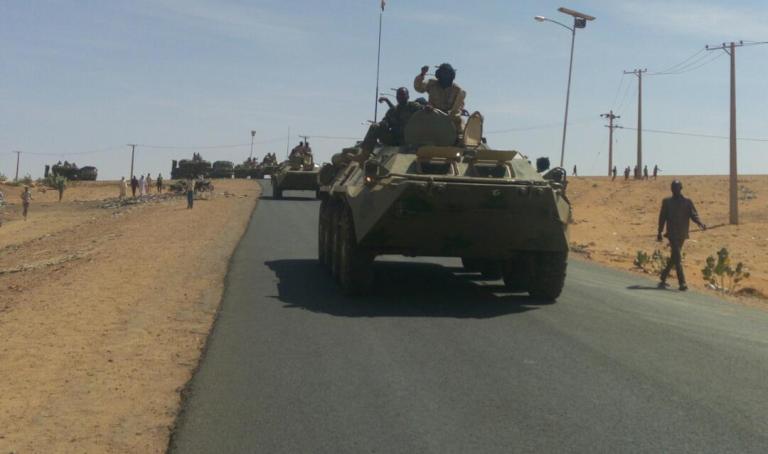Sudanese government faces challenges in Darfur perilous exercise of arms collection

November 5, 2017 (Nyala/El Fasher) – According to identical sources in different parts of the western Sudan region of Darfur, the collection of weapons campaign launched by the government is facing a series of difficulties, due to the lack of needed funds and the resistance of the Musa Hilal-led Border Guards Forces militia
Since the middle of last August, the Sudanese vice president has inaugurated the campaign to collect weapons from citizens, militias and tribes in a two-stage process, voluntary and coercive.
However, South Darfur arm collection committee decided at the end of last October to postpone the campaign of forcible phase indefinitely due to lack of funding.
A military source in South Darfur state told Sudan Tribune that the higher committee for the collection of weapons did not meet its commitment to provide the needed funds for the forcible weapon collection. Therefore, this phase which was supposed to be launched in the state in mid-October has begun only early November.
The military official did not disclose the amount of money allocated for the campaign.
“It is a big figure, but it should be provided to finance the fuel, per diems, and incentives to cope with emergencies and injuries if there are problems during the inspection and forcible collection.”
The official statements say 30,000 arms have been collected in the five states of Darfur region during the voluntary process which started in August, while official figures estimate at 700,000 the number of illegal weapons in Darfur.
Until now, the government collected weapons from the Popular Defence Forces (PDF), the Popular Police, but the Border Guards led by tribal leader Musa Hilal refused to hand over their weapons or to join the Rapid Support Forces led by Lieutenant General Mohamed Hamdan Daglo, (aka Hametti). Hilal announced his readiness to confront government forces militarily, if they attempt to disarm his militia forcibly.
To prepare for any eventuality, the government dispatched over 10,000 RSF militiamen to North Darfur state where Hilal forces estimated at 2500 fighters are based. The tribal leader and former Jajaweed leader sought to rally some armed groups like Savanna led by Abdallallah Rizqallah and others saying he has the money, weapons and ammunition just needs men to confront the government.
After tolerating for long time his activities in the gold mines of Jabal Amir, the government dispatched RSF forces to control the area. In a show of force, the militiamen confiscated motorcycles in the mines.
Also, on Friday morning, an additional RSF armoured regiment composed of tanks and armoured vehicles arrived in El-Fasher in reinforcement of the weapons collection force.
In the other states, the government has also shown firmness towards the tribal leaders who sought to resist the arms collection operation.
Some 93 tribal leaders in East Darfur state have been arrested and moved to Portt Sudan prison after the renewal of fighting between the Ma’alia and Rizeigat tribes.
In South Darfur, with the launch of the forcible phase of the campaign, the government conducted unnecessary show of force in Kalma camp which remains a symbol of the IDPs’ plight after 14 years since the eruption of the armed insurgency in Darfur.
In West Darfur which is classified as a calm state, the forcible campaign has not yet been launched but preparations have started.
Observers say the government has been facing all these challenges in the perilous exercise of authority because it didn’t work to create a conducive environment and take the necessary measures to reassure civilians before it launch.
“The government is unable to provide security and protection to the civilians and their property,” said Nabila Mohamed Ahmed Haroun, a civil society activist in Nyala.
“The killing and looting continue in the region, forcing citizens and tribes to take up arms to protect themselves and their property.”
(ST)
